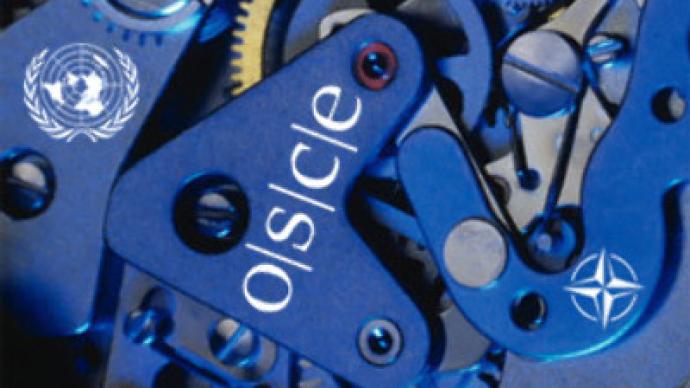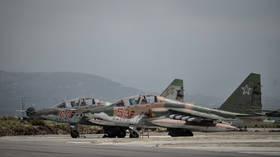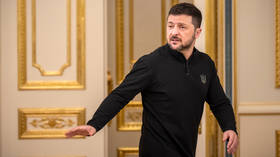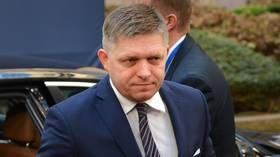Friday’s press review

Russian newspapers look at Russia’s relations with Ukraine and Georgia. They also publish extensive opinion articles stating that the global economic crisis is shaking the foundations of the post-WW II political system.
NEZAVISIMAYA GAZETA writes that Ukrainian analysts predict that relations between Kiev and Moscow will become worse in the near future. The paper says, it is possible, especially after the conflict in South Ossetia and Abkhazia revealed the degree of support that Ukraine’s president Yushchenko gave his Georgian colleague Saakashvili. An announcement by General Mikhail Krush, the commander of the air defence of the Russian Army, that he had found evidence of Ukrainian soldiers manning the anti-aircraft missile launch pads during the conflict, is not likely ease bilateral tensions.
Even with the evidence pointing to members of an ultra-nationalist Ukrainian militia rather than to regular Ukrainian troops, the notion of Ukrainians directly involved in a shooting war with Russia suggests that the relationship between the two nations is indeed at its lowest point since both nations became independent, says the paper, adding Ukrainian analysts think that Russia is “exploiting the image of Ukraine as a ‘bad’ country, unstable and lacking in order, while in comparison in Russia everything is fine.”
At the same time, says the paper, President Medvedev of Russia blames “the lack of effective state power” in Ukraine for the problems in bilateral relations. Russian experts are not as pessimistic as their Ukrainian colleagues. One of them is quoted by the paper as saying: “Ukraine isn’t paying for gas, but Gazprom still tries to find compromise. I do not see even a trace of a wish to paint Ukraine as more of an enemy than it already is.”
VREMYA NOVOSTEI writes that the US–Georgia co-operation agreement to be signed on January 4, 2009, is the parting gift of George W. Bush to Tbilisi. The paper says that the agreement makes Georgia a strategic partner of the US and is received by the Georgian leadership as a ‘substitute’ to the action plan for NATO membership that Georgia failed to get.
However, says the paper, Georgian politicians, especially members of the opposition, are already voicing their doubts about a document prepared in such a hurry. They say, writes the paper, that it would have been wiser to sign the agreement with Barack Obama’s administration.
Georgian experts, on the other hand, say that the text must have been created in co-ordination with the new US administration, so it must be acceptable to America, as well as the date of the signing.
KOMMERSANT publishes an op-ed article by its columnist Mikhail Zygar, who writes that the world financial crisis became the main political event at the end of the past year. It predicted a new Cold War towards which both the West and the East were slip-sliding after the conflict in the Caucasus.
The author says that the crisis has already altered policies of the leading nations of the world. For Russia, the US and the EU, he continues, it means major shifts in the ways they interact with each other and the world at large.
Russia, says Zygar, has to cut back the most ambitious foreign policy-related programmes because there’s simply not enough money. He quotes the new national security doctrine to be adopted in the near future on the pragmatic character of Russia’s future foreign policy line, which would exclude high-cost confrontational engagements such as a new arms race. The columnist writes that “even Gazprom, the flagship of Russia’s foreign policy, is now … looking for Western partners”’ to share several investment programmes in Russia. There goes, says the author, the legend of Russia’s ‘energy grip’ on Western Europe.
For the US, he writes, the crisis implies a brand new start in a new direction. The first to go, he says, will most probably be the missile defence system together with its elements in Eastern Europe. The author gives two reasons for that: the fact that Iran is still too far from acquiring the ballistic missiles against which this system is supposed to work, and the exorbitant cost of the program. Apart from that, he continues, there is also Barack Obama’s electoral campaign promise to start direct negotiations with the Iranian leadership. The crisis, says the author, is definitely beneficial to Russia-US relations in which missile defence, as well as Iran, play the role of thorns in the tender parts of the body.
Europe also has to shift modes, and it is doing just that at the moment, says the author. The crisis, together with the tensions caused by the conflict in the Caucasus, has produced an all-European superhero, the French president Nicholas Sarkozy, who has shown to a disillusioned and discouraged Europe that a high degree of unity is possible, if there is an energetic leader.
As for Europe’s relations with Russia, the change here is very much due to the fact that in the near future European gas imports may drop by 25% while oil import may decrease by 13%. This means not only additional hardships for Russia but also the end of the imagined threat of a Russian ‘energy grip’ on Europe, writes the author. He adds that the decrease in European imports also goes well with the main mantra of all economic plans announced by Russia recently: the diversification of the national economy and gradual easing away from the not-so-honorable status of raw materials supplier.
Evgeny Belenkiy, RT












